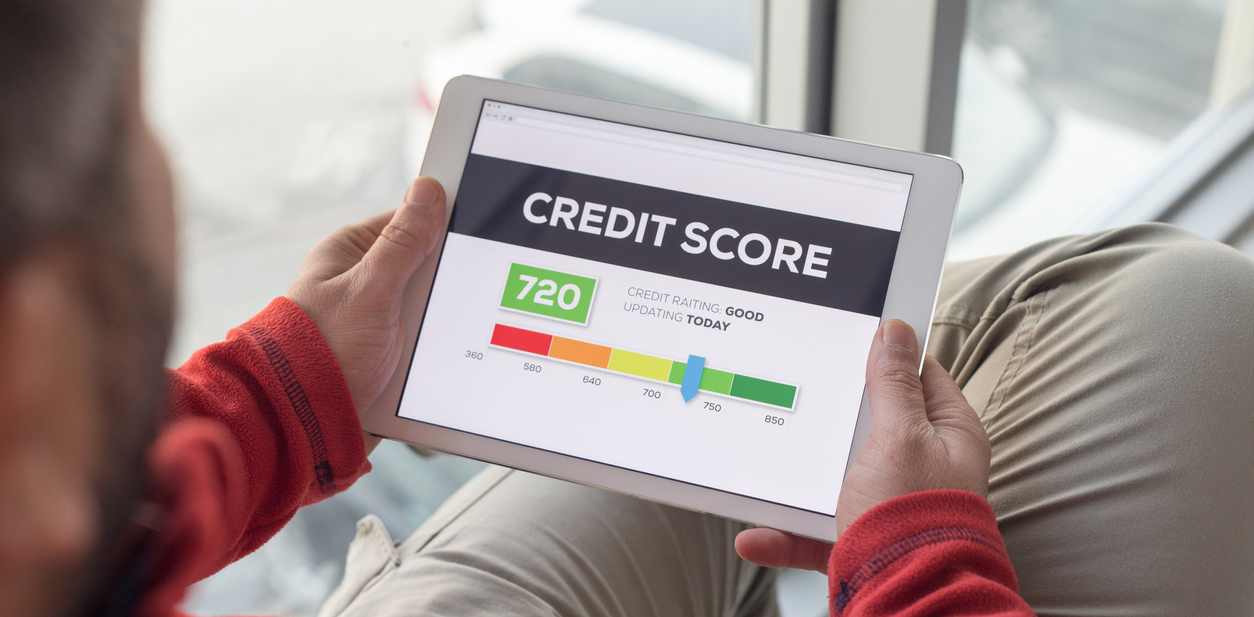Buying used is a better option for most people but there are some instances where a new car would work for your needs — especially if you plan to keep it for several years.
Once you decide to get a car, one of the first questions you’ll have to answer is: Should I buy new or used? The buy new versus used car debate is longstanding. Used cars may cost less, but new cars can come with more features like an extended warranty or even special financing offers.
Although buying a used car is the better option for anyone looking to save money, financial implications aren’t the only factors to consider when finding the best car for you.
Buy New vs. Used: How Vehicle Depreciation Impacts Your Car’s Value
When you buy a car and start driving it, it becomes less valuable over time. More mileage, regular wear and tear, and newer models being released each year can all contribute to the depreciation of a vehicle. This is a gradual but permanent economic decrease. But in exchange, you get to enjoy the benefits of owning the car and driving it where ever you wish.
The average rate of car depreciation is around 10% each year. However, new cars tend to depreciateat a much faster rate during their first year. According to CarFax, the value of a vehicle can decrease more than 20% after the first 12 months of ownership.
For example, a new 2021 Hyundai Tuscon is listed at just under $24,000 on Edmunds. A used 2019 model of the same vehicle with under 20,000 miles on is listed for $17,000. So the vehicle’s value has quickly depreciated by around 30%.
Not to mention, you’d save $7,000 by buying the car gently-used and still get many of the same features.
Depreciation impacts each vehicle differently depending on the make, model, and accident history. However, this is still something you’ll want to consider when choosing your next car. Kelley Blue Book has developed their own list of cars that keep their value better than other models. Consumer Reports has also listed some of the most reliable vehicles including the Kia Seltos, Mazda CX-5, and Mitsubishi Outlander.
Factors That May Impact Your Car-Buying Decision
There are a few things that might come to mind as you step onto a car dealership lot or browse for vehicles online. It’s important to keep these factors in mind when determining whether to buy a new or used car.
Residual Value
This represents the value of a car as it depreciates over time or the resale value. If you’re looking to sell your car one day, realize used cars depreciate at a slower rate. This means you may be able to sell your used car for around the same price you purchased it for.
Price and Financing
Most prospective buyers will need financing. This means you’ll have to determine if and how you’ll pay for a monthly car loan vs the entire price of the car upfront. A used car may be cheaper to buy or finance, but it also depends on the make and model of a vehicle. A used vehicle from 10 years ago will cost much less than a used car manufactured last year. According to Edmunds, the average price of a used car is $20,68 and the average price of a new car is $36,718.
Maintenance and Overall Cost of Ownership
A new car could certainly spare you high repair costs during the first few years especially since most come with extended warranties and coverage plans. According to Consumer Reports, the average maintenance costs over 12 months for a three years old vehicle is $83 and the cost to maintain a 10-year-old vehicle was $458.
Features
Safety features and technology are also important to buyers. In fact, your salesperson at the dealership may tell you about all the unique features of a particular car and whether it has lane-change warnings or built-in software. You’ll have to weigh how important these features are when selecting your next car and if they’re worth the cost.
Trade-in Value
Trading in an existing vehicle could help lower some of your costs to finance another car at a dealership whether you’re thinking about getting a new or used car.
When It Makes Sense to Buy a New Car
If you have great credit, plan to keep your car for a long time, and want a vehicle that provides the best safety and environmental-friendly features, it may make sense to buy a new car.
In addition to experiencing that coveted new car smell, new vehicle models are supposed to improve each year in terms of how they run and the features they come with. If you’re looking for heated windows, more fuel efficiency and a cutting-edge back-up camera, a new vehicle may catch your eye.
Manufacturers are also making safer cars for the environment with each passing year. According to the Environment Protection Agency, during the last five years, 11 out of 14 of the largest vehicle manufacturers have improved CO2 and fuel economy of their new vehicle fleets. Since 2004, CO2 emissions have decreased by 23%.
Buying new means you don’t have to worry about any previous owners or accidents. New car warranties and service contracts vary by manufacturer but usually include maintenance and most repairs for up to 3 years or 36,000 miles (whichever comes first).
It’s also easier to get special dealership financing with a newer car or even cash back deals. Dealers and even some banks tend to offer lower interest rates for new car loans as opposed to used car loans. Ultimately, your interest rate will depend heavily on your creditworthiness.
Understanding 0% APR Auto Loan Offers
On the surface, a 0% APR offer for a brand new car sounds nice. With the average rate of a new car loan currently hovering around 4.98%, you could potentially save money by putting more toward the principal balance.
However, this doesn’t necessarily mean your car loan doesn’t have an interest rate. Most 0% APR offers are temporary and expire before your loan term is up. You could also have much higher monthly payments with a 0% APR, especially if the car has a high price tag.
Still, a 0% APR offer may be a solid option for the right person with excellent credit. Be sure to review your credit with Credit Sesame or Credit Karma for free before first. (Experian also offers a free FICO score if you sign up for credit monitoring.)
When It Makes Sense to Buy a Used Car
It makes sense to buy a used car if you’re looking to spend less on the purchase price, avoid a high depreciation rate during the first year, and have considered other financing options outside of a dealership.
Buying a used car doesn’t give you the privilege of knowing you’re the first owner, but it does come with other perks. Even if you buy a used car that was manufactured within the last three to four years, you could still save money on the purchase price due to depreciation.
If your lender doesn’t require comprehensive auto insurance coverage and you have a clean driving record, your insurance premiums could be lower with a used car. Your vehicle’s age and model are two factors that impact your insurance rates so a used car is not always cheaper to insure but most times it can be.
Buying a used car, in general, may be different or very similar to buying a new car. You have more options because you can go to a dealership or buy from a private owner and get a loan from your bank. However, you’ll also want to research the upkeep costs for a model you’re interested in, review the vehicle’s history and possibly even have a mechanic look at the car first.
Your used car may or may not come with a manufacturer warranty, depending on where you purchase it. However, you can always purchase a vehicle service contract to cover repairs outlined in your policy.
If you choose to buy a used car through a dealership, you may have the option of getting a certified pre-owned vehicle.
Understanding Certified Pre-Owned Vehicles
Although certified pre-owned cars, trucks, and SUVs may cost more than uncertified vehicles, it will mean the car has been thoroughly inspected and certified by the manufacturer. One of the biggest potential drawbacks of buying a used car is the car’s ability to remain reliable over time.
You probably don’t want to get stuck paying for tons of repairs and maintenance shortly after buying a used car. Certified pre-owned vehicles are often protected against defects and costly repairs since they are covered by an extended manufacturer’s warranty.
However, you should always get your used vehicle inspected by a third-party mechanic, whether it’s certified pre-owned or not. Most states do not offer lemon law protections for used car purchases, even if they’re certified.
Is It Easier to Finance or Refinance New or Used Car?
Getting a loan for a new car can be easier than a used car — and possibly even easier than refinancing the loan.
Auto Loan Financing
Car financing is arranged based on the value of the vehicle you’re buying. The value of newer cars tends to match the loan amount since they’ve had very little time to depreciate before the purchase. The loan to value (LTV) ratio will be favorable, unless you’re rolling over your previous auto loan debt from a trade-in into the new car loan.
Car (LTV) Loan-to-Value Calculator
A loan-to-value ratio over 100% means you owe more on your loan than your vehicle is worth. An LTV over 125% can make it harder, but not impossible, to qualify for a refinance loan.
If your LTV is less than 100%, your car's value is higher than what you owe on your loan. The lower your LTV, the better.
The lender will hold the title until the loan is paid off and use the car as collateral if you default on the loan. If the lender can’t value the car to either match or exceed your desired loan amount, you’ll have a hard time getting a loan. Any debt over the car’s value is unsecured, meaning there is no collateral to back that debt, and is considered risky for lenders. (This is where a GAP waiver can help.)
This is why it’s so hard to finance older cars for a high loan amount because the value may not add up to justify lower-risk financing for the lender. There are ways around this, however, especially if you want to buy a used car.
You can arrange to make a larger down payment or consider alternative financing options. While credit isn’t the only factor that’s considered, it’s still helpful to make sure you don’t have late or missed payments on your credit report.
Auto Loan Refinancing
In some cases, it may be harder to qualify to refinance a car loan than it is to get the original loan.
Lenders in a dealership’s network may not have a maximum debt-to-income ratio, or DTI, which is a comparison of your monthly debt payments versus your gross monthly income. Not having a maximum DTI requirement can lead to getting an expensive car loan that can strain your budget. However, when refinancing, lenders will often have a maximum DTI of 50%.
(DTI) Debt-to-Income Ratio Calculator
Your debt-to-income ratio, or DTI, is a percentage that compares your monthly debt payments to your gross monthly income.
Many auto refinance lenders have a maximum DTI of around 50%. However, if you're applying for a mortgage, lenders prefer a DTI under 36%.
Another thing to consider is the vehicle itself. Lenders may only refinance vehicles that are less than 10 years old and have fewer than 120,000 miles. These two factors also will impact your LTV. If you owe more on your auto loan than the car is worth, you may have a hard time getting approved for refinancing. Maximum LTV is generally around 125%, though a down payment on the refinance loan can help bring the ratio down to meet your new lender’s guidelines.
Is It Best to Buy a New or Used Car?
As you can see, deciding whether to buy a new or used car is not always so black and white. If you’re looking at things solely from a depreciation standpoint, then buying a used car that is just a few years old may be the best option for you.
Still, you also have to ask yourself what you want in terms of features, sustainability, and if an included manufacturer’s warranty would truly benefit you in the long run.
The key is to continue researching options and comparing everything from pricing and features to insurance and costs for upkeep year after year. Buying a car is an important financial decision. Taking the time to make a careful consideration will allow you to narrow down a decision with confidence.
;)












